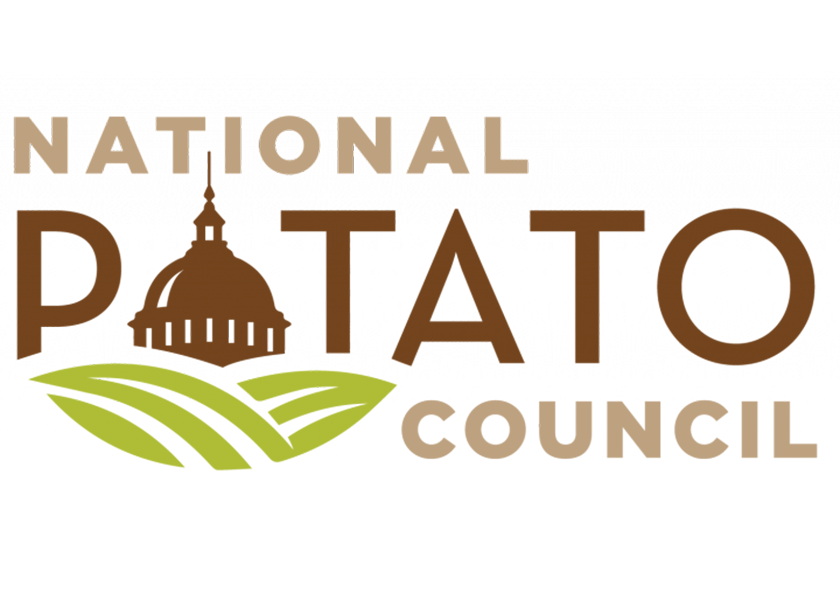U.S. potato industry seeking fresh access to Japan

The U.S. potato industry is ramping up efforts to win fresh access to the Japanese market.
Plant-health officials from both the U.S. and Japan will meet in Japan on Sept. 25-26 to discuss fresh potato market access and other issues, according to Kam Quarles, CEO of the National Potato Council.
Although the U.S. has market access to Japan for fresh chipping potatoes since 2006, the U.S. is seeking market access for all fresh potatoes, including table stock potatoes, according to the NPC.
Quarles said chipping stock potato shipments to Japan have been going on without incident for several years.
“We think that those continued volumes of [chipping potatoes] to Japan speak to the security of U.S. processes, both domestically and with our export protocols," Quarles said.
Once opened, Japan is expected to become a massive market for U.S. fresh potato exports. The NPC has estimated fresh market access could be worth $150 million to $200 million annually — a 10% to 15% increase in global U.S. fresh potato exports.
Because of the political sensitivity of this issue, Japan has delayed negotiations with the USDA Animal & Plant Health Inspection Service for more than three years, according to the NPC.
“Japan claims to be ‘working on the issue’ then shows no progress year after year,” the NPC said in a blog post about the issue.
In a media briefing on Sept. 19, Quarles said the opportunity for fresh table stock sales in Japan is significant, perhaps as important as fresh sales to the recently opened Mexican market.
“We believe that that Mexican market will be about $150 million once it's fully built out on an annual basis,” Quarles said. “And what that means for our industry is that's going to be roughly a 10% increase in global fresh potato export exports. The Japanese opportunity is almost a mirror image of Mexico; we believe that will be another $150 million once we can get access to it.”
Quarles said U.S. officials and industry leaders have been trying to win Japanese access for U.S. fresh potatoes for more than 20 years. Efforts have intensified over the past four years, Quarles said. Because of domestic political concerns in Japan, progress has been hard to find, he said.
“I think the phytosanitary issues are not terribly difficult to deal with,” Quarles said. “It's really a question of politics.”
Japan is already the second-largest export market for U.S. potatoes, much of which is processed potatoes, he said. Mexico is the top market for U.S. potatoes, and Canada is third after Japan.
In the most recent fiscal year, the U.S. moved just shy of 350,000 metric tons of both processed and fresh chipping potatoes into Japan, valued at about $450 million.
Quarles will attend the Sept. 25-26 meeting with Japanese and U.S. officials, along with NPC technical expert Matt Lance. Fresh potato access is the top priority for the U.S. delegation at the meeting, and Quarles said NPC is supporting that effort.
“We’ve already seen a number of efforts [about fresh potato access] from [Agriculture] Secretary [Tom] Vilsack personally in his engagement with Japan,” he said.
The U.S. was hoping that Japan would finalize a pest risk assessment for fresh potatoes in Japan by the time of the Sept. 25-26 meeting; however, recent communication with Japan has revealed that will not be the case, Quarles said.
“Our optimism was not rewarded,” he said. “Japan has not provided that pest risk assessment.”
Instead, he added, they provided U.S. officials with an updated lengthy list of pests in the U.S., a list that included some potato pests that have never been seen in the U.S.
Quarles said it appears Japan wants to keep dragging the issue out, “slow walking” the issue. “It is something that the USDA, [the U.S. trade representative] and all of our government advocates are going to need to push past in order for us to be successful.”
Japan doesn’t allow fresh table stock potatoes from other countries, Quarles said.
“Japan has a very small domestic industry, but they have a very big voice,” he said, adding that Japan effectively has a closed market.
Short-term success
Quarles said the bilateral meeting with Japan will hopefully bring clarity on the development of the pest risk assessment.
“It will take some time to sort out the issues that Japan raises, and the two countries will have to agree on that,” Quarles said. “And then they'll have to agree on mitigation measures to deal with the legitimate issues that will come from that document.”
That process could take about a year after the pest risk assessment is published, he said.
“We do not want to have this become an endless negotiation that really has no off-ramp,” he said. “What we're pushing for now is to conclude those discussions.”
Quarles said Japanese consumers will benefit from improved access to U.S. fresh potatoes.
“The [Japanese] domestic industry doesn't have the ability to serve the demand from their population,” Quarles said. “And having access to another stream of high-quality potatoes is going to be very good for those consumers and may very well be good for [Japan's] domestic industry, if you can put more potatoes on menus."







